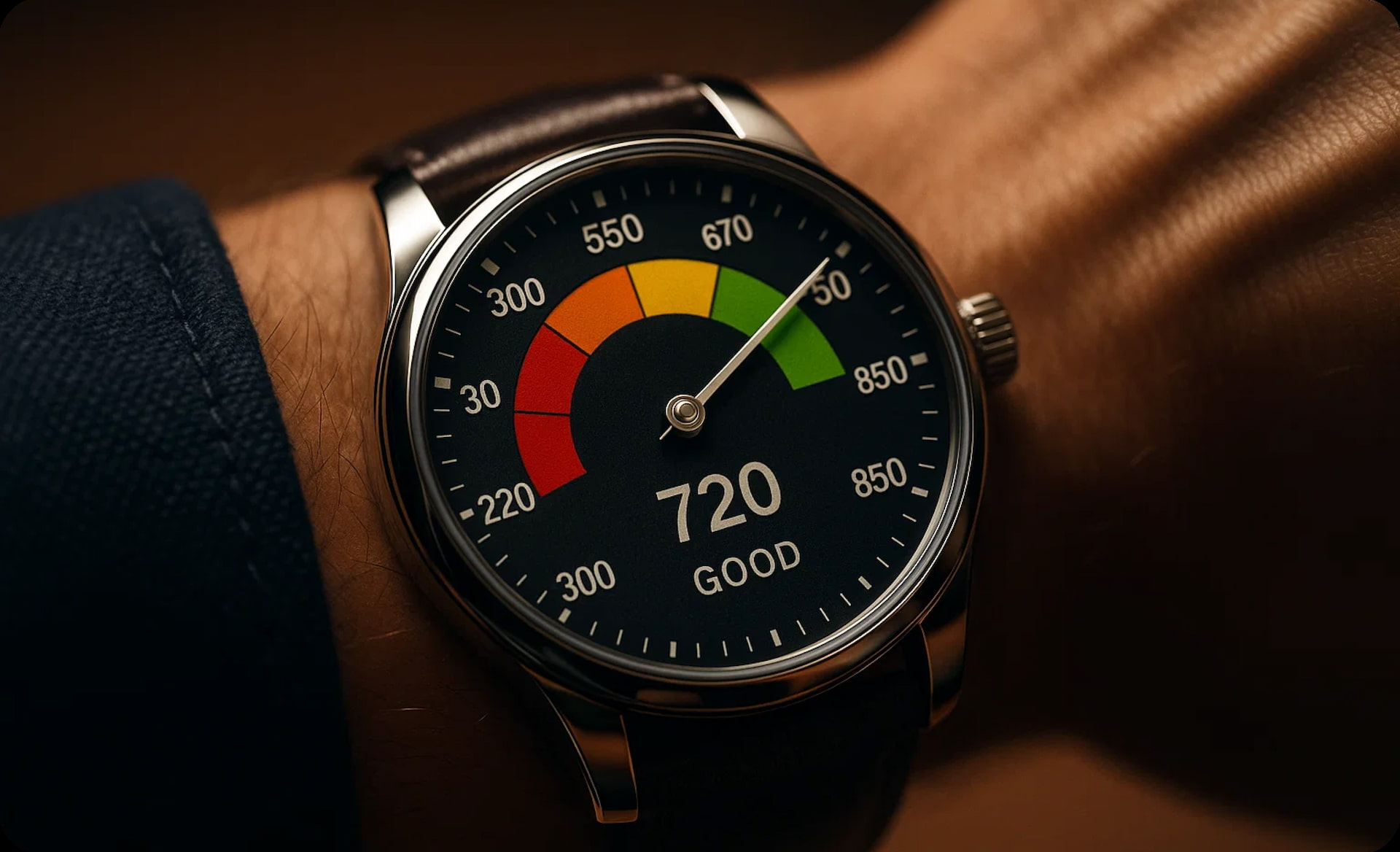Valentine’s Day is around the corner, and it has us wondering about one relationship in particular: the one with money. Having a healthy relationship with money impacts various aspects of your life, including your financial stability, mental well-being, and overall satisfaction with life. A negative relationship with money can lead to stress, anxiety, and poor financial decision-making.
Can you identify what your relationship with money is like? Is it something you’re looking to improve? As with most things related to personal finance, everyone’s answers are different.
What does a good or bad relationship with money look like?
Finances are a rather intimate part of our lives. The decisions we make with money, and the way we feel about it, can be influenced by many factors. If you grew up in a home that lacked financial stability, you’ll likely have a different relationship with money than someone who grew up in a home of financial abundance.
Let’s start off with a baseline of what a good relationship with money can look like. Typically, this can be characterized by several key traits, including:
- Financial stability: You are able to consistently meet your financial obligations, such as bills and savings goals, without feeling stressed or overwhelmed.
- Control: You have a clear understanding of your income and expenses, and are able to make informed financial decisions based on your needs and goals.
- Gratitude: You appreciate what you have, rather than constantly feeling the need for more.
- Mindful spending: You make conscious decisions about how to allocate your money, taking into account your values, goals, and priorities.
- Planning and preparation: You have a plan for achieving your financial goals, and are taking steps to build wealth and prepare for the future.
- Confidence: You feel confident in your ability to manage your finances, and are not afraid to seek out help or education when needed.
- Minimal stress: Money is not a source of constant worry or stress, and you’re able to enjoy life and pursue your passions without financial strain.
Ultimately, a good relationship with money is one where you feel in control, confident, and satisfied with your financial situation. A bad relationship with money can be characterized by impulsiveness, avoidance, fear, anxiety, and a constant feeling of dissatisfaction with your financial situation, that often leads to avoiding financial planning.
You may have experienced seasons where your relationship with money felt really good, and other seasons… not so much. That’s okay. Life will ebb and flow, and as we continue to learn we can work towards having more good seasons than bad ones.
Identify your current relationship with money
You now know what some characteristics of a good relationship with money look like, but that doesn’t necessarily help you understand your current relationship. You can start to identify this by examining your thoughts, feelings, and behaviours related to money. Grab yourself a box of chocolates, and consider some of the following questions:
- How do you feel about money? Do you feel stressed, anxious, or overwhelmed when thinking about your finances? Conversely, do you feel confident and in control? Are you satisfied with your current financial state, or are you constantly wanting more?
- How do you manage and spend your money? Do you have a clear understanding of your income and expenses? Do you have a budget and stick to it? Are your purchases aligned with your values and priorities? Or do you make impulsive, unplanned purchases?
- Do you have financial goals? Do you have a plan for achieving them? Are you taking steps to build wealth and prepare for the future?
- How do you react to financial challenges or setbacks? Do you feel confident in your ability to overcome them? Or do you feel overwhelmed and discouraged?
- What do relationships with money look like with those close to you? What does your parents’ relationship with money look like? Are you mimicking the money relationships of those in your social circle?
Take some time to examine your thoughts, feelings, and behaviours related to money to gain a better understanding of your current relationship and identify areas where you want to improve.
Identify your version of a healthy relationship with money
As we stated earlier, everyone’s relationship is going to look different and a good relationship with money will mean various things to different people. As much as we can define characteristics, we can’t tell you what’s objectively right or wrong.
To define what a healthy relationship with money looks like to you, start exploring your financial values. Rank what values are most important to you, like: security, freedom, generosity, frugality, growth, experiences, and legacy.
Everyone's personal financial values are unique and may change over time, but having a clear understanding of them can help you make informed decisions about how to manage your money.
When you’ve outlined what financial values are most important, you can start to think about what healthy financial thoughts or practices you want to adopt. Do you want to start budgeting? Hit a savings goal? Reduce debt? Increase your financial literacy? Practice more mindful spending habits?
Exploring these concepts and incorporating healthy financial thoughts and practices into daily life can help you improve your financial well-being and build a strong financial foundation for the future.
Educate yourself about personal finance
Having a solid understanding of personal finance concepts can help you reach your goals, give you more confidence, and help you make better, more informed, financial decisions. You can continue to educate yourself in various places, so find one that works for you.
If you commute a lot, you might enjoy reaching for podcasts or e-books. If you like reading, explore books in financial literacy that capture your attention. Need a bit more structure? Look for classes, workshops, or webinars that you can attend. Let’s not forget, you can always read through the Neo blog to learn about a variety of topics like building credit, credit card pro-tips, inflation, investing, and more.
You can’t build a stronger relationship with a friend without getting to know them better—your relationship with money is no different. It takes time, consistency, and effort, but it’s worthwhile in the long run.
Practice mindfulness with your spending
Mindful spending is when you make conscious, informed spending decisions that align with your values and priorities. This can help you stay on track for your goals, and reduce anxiety around financial decisions. Are you historically very frugal with money, but want to travel more this year? Make a plan to set aside money for a trip this year (bonus points if it's in a high-interest savings account!), and know that you’re investing in something that’s important to you.
Impulse spending can get the best of us sometimes. Mindful spending can help reduce unnecessary purchases. Gravitating towards something in a shop? Take a walk and come back to it and see how you feel. Weighing out a large purchase? Let it sit for 24-hours before making a decision.
You might surprise yourself with how many of your spending habits start to change. Similar to how it’s important to avoid emotional investing, it’s also important to avoid emotional spending. This isn’t to say all emotional spending is bad; sometimes you really just need to do something nice for yourself after a bad day. However, much of the time our financial well-being can come down to good and bad habits, so practicing mindfulness can bring you closer to your financial values and goals.
Seek support and accountability
With any new habits you want to implement, it helps to have a support system. Working towards a healthy relationship with money is no different.
After taking some time for thought and reflection, start writing out what you’ve learned, what you want to change, and outline some goals. Are there people in your life with a healthy financial relationship that you aspire to have? Start sharing where you’re wanting to improve, and how they can potentially support you and hold you accountable.
If you have a bunch of questions and scenarios you want to think through, then it could be beneficial to reach out to a financial coach or advisor. You know yourself best, so find the kind of support you’re looking for that will help you achieve your objectives.
Conclusion
Everyone’s relationship with money is different, and evolves over time. It's an ongoing process that requires effort and commitment, but also self-compassion. If you’re looking to improve your relationship with money, you’ll need to spend some time reflecting on your thoughts, feelings, and behaviors related to it.
To continue improving your relationship with money, you can try the following tips:
- Track your spending to understand your financial habits
- Create a budget and stick to it
- Set short-term and long-term financial goals
- Avoid comparing your financial situation to others
- Practice gratitude for what you have and focus on what truly brings you joy
- Educate yourself about personal finance and investing
- Seek professional guidance if necessary.
By taking these steps and developing a positive relationship with money, you can achieve financial stability and peace of mind. One last thing…
Dear (insert your name here), Our love for you is like digital banking. Always with you, and available anywhere, anytime.
Happy Valentine’s Day! Love, Neo
Legal: This article provides information and is not intended to provide any personalized tax, investment, financial, or legal advice. You are encouraged to seek professional advice before making financial decisions.



